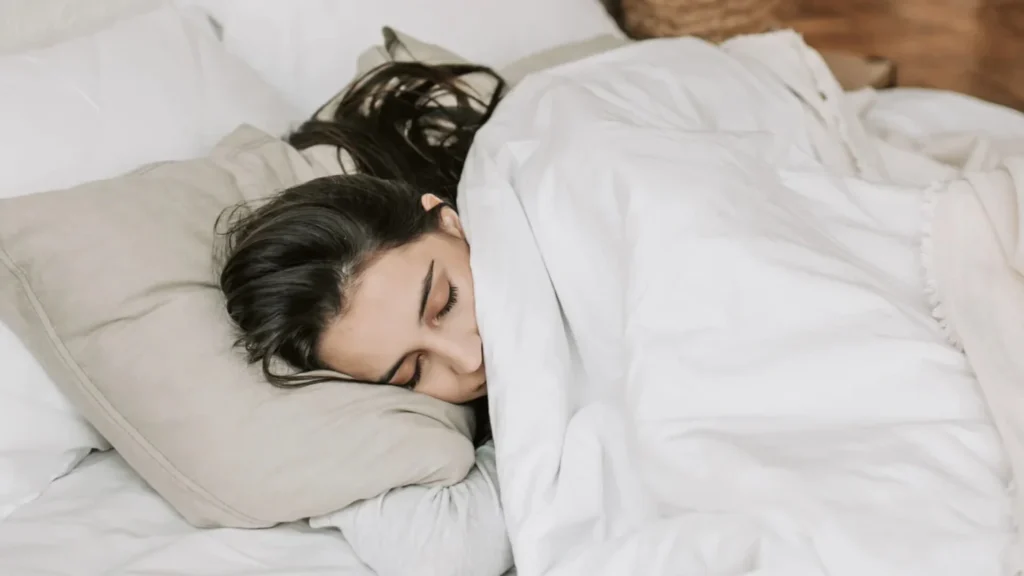Introduction
Sleep is a fundamental component of our daily lives, essential for overall well-being and health. However, millions of people worldwide struggle with sleep-related issues, such as insomnia, sleep disturbances, or poor sleep quality. In the quest for better sleep, many have turned to alternative remedies like CBD, a natural compound derived from the cannabis plant. This article explores the relationship between CBD and sleep, delving into the potential benefits, research findings, and practical considerations for incorporating CBD into your sleep routine.

Understanding the Importance of Sleep
Before we delve into the role of CBD in improving sleep quality, let’s first understand why sleep is so crucial.
Sleep is a complex physiological process that allows the body and mind to rejuvenate and recover. During sleep, various essential functions occur:
1. Physical Restoration
- Muscle tissue repair
- Immune system strengthening
- Growth hormone release
2. Cognitive Processes
- Memory consolidation
- Emotional regulation
- Brain detoxification
3. Energy Conservation
- Preservation of physical and mental energy for the next day
4. Hormonal Regulation
- Balance of hormones like cortisol, insulin, and melatonin
The Prevalence of Sleep Disorders
Despite the importance of sleep, many individuals struggle to get adequate rest. According to the American Sleep Association, about 50-70 million Americans have a sleep disorder, with insomnia being the most common. Sleep disorders can significantly impact a person’s quality of life, leading to daytime fatigue, reduced productivity, and increased health risks.
CBD and Its Potential for Improving Sleep
CBD, short for cannabidiol, is one of over a hundred compounds found in the cannabis plant. Unlike its cousin THC (tetrahydrocannabinol), CBD does not produce psychoactive effects, making it a safe and non-intoxicating option for various health concerns, including sleep disturbances.
How Does CBD Work?

The human body has an endocannabinoid system (ECS), a complex network of receptors that play a crucial role in maintaining balance and homeostasis. CBD interacts with the ECS, potentially influencing various bodily functions, including sleep. While the exact mechanisms are still under investigation, researchers believe that CBD may impact sleep in the following ways:
1. Anxiety and Stress Reduction
CBD has shown promise in reducing anxiety and stress, both of which are common contributors to sleep problems. By calming the mind, CBD may facilitate falling asleep faster and experiencing deeper sleep.
2. Pain Management
Chronic pain can disrupt sleep patterns. CBD’s analgesic (pain-relieving) properties may help alleviate discomfort, making it easier to sleep through the night.
3. Regulation of the Sleep-Wake Cycle
CBD may influence the body’s internal clock, helping to establish a healthy sleep-wake cycle. This can be particularly beneficial for individuals with irregular schedules or shift work.
4. Neurotransmitter Regulation
CBD interacts with neurotransmitters like serotonin and GABA, which play key roles in sleep regulation. By modulating these neurotransmitters, CBD may promote relaxation and improve sleep quality.
CBD and Clinical Studies
While anecdotal evidence and early research suggest that CBD may be beneficial for sleep, more extensive clinical trials are needed to confirm these findings definitively. Some noteworthy studies include:
1. A 2019 Study in The Permanente Journal
This study on 72 participants with anxiety and sleep concerns found that 79.2% of participants experienced lower anxiety levels, and 66.7% reported better sleep within the first month of taking CBD.
2. A 2020 Review in Frontiers in Pharmacology
This review analyzed existing literature on CBD for sleep, concluding that CBD appeared to have a positive impact on sleep in both animal and human studies. However, the authors emphasized the need for further research.
How to Incorporate CBD into Your Sleep Routine
If you’re interested in trying CBD to improve your sleep quality, here are some practical considerations:
1. Consult with a Healthcare Professional
Before starting any new supplement, including CBD, it’s advisable to consult with a healthcare provider, especially if you have underlying medical conditions or are taking medications.
2. Choose High-Quality CBD Products
Look for reputable CBD brands that provide third-party lab testing to ensure the purity and potency of their products. Opt for full-spectrum or broad-spectrum CBD products for a wider range of beneficial compounds.
3. Determine the Right Dosage
CBD dosage varies from person to person. It’s recommended to start with a low dose and gradually increase it until you find the optimal amount for your needs. This process is often referred to as “titration.”
4. Consider Timing
The timing of your CBD intake can affect its impact on sleep. Some individuals prefer taking CBD about an hour before bedtime, while others find it more effective when taken earlier in the day to reduce anxiety.
5. Monitor Your Response
Keep a sleep journal to track your sleep patterns and CBD dosage. This can help you gauge the effectiveness of CBD in improving your sleep quality over time.
6. Be Patient
CBD’s effects may not be immediate or consistent. It may take some time for your body to adjust and for you to notice improvements in your sleep quality.
Safety Considerations
CBD is generally considered safe and well-tolerated by most people. However, it’s essential to be aware of potential side effects, which are typically mild and infrequent. These may include:
- Dry mouth
- Dizziness
- Changes in appetite
- Diarrhea
- Fatigue
It’s crucial to follow the recommended dosage guidelines and start with a low dose to minimize the risk of adverse effects. Additionally, if you’re pregnant, nursing, or have any underlying health conditions, consult your healthcare provider before using CBD as a sleep aid.
Legal Status of CBD
The legal status of CBD varies by country and even within different regions of a country. In the United States, for example, CBD derived from industrial hemp (containing less than 0.3% THC) is legal at the federal level. However, state laws regarding CBD may differ, so it’s important to be aware of local regulations. Always purchase CBD products from reputable sources to ensure compliance with applicable laws.
Other Sleep-Enhancing Strategies
While CBD may contribute to improved sleep quality, it’s most effective when combined with other healthy sleep practices. Here are some additional strategies to enhance your sleep:
1. Create a Relaxing Bedtime Routine
Engage in calming activities before bed, such as reading, meditation, or taking a warm bath, to signal to your body that it’s time to wind down.
2. Maintain a Consistent Sleep Schedule
Go to bed and wake up at the same times every day, even on weekends. This helps regulate your body’s internal clock.
3. Create a Comfortable Sleep Environment
Ensure your bedroom is conducive to sleep by keeping it dark, cool, and quiet. Invest in a comfortable mattress and pillows.
4. Limit Exposure to Screens
Reduce exposure to screens (phones, tablets, computers, and TVs) at least an hour before bedtime, as the blue light emitted can interfere with your body’s production of melatonin, a hormone that regulates sleep.
5. Watch Your Diet
Avoid heavy meals, caffeine, and alcohol close to bedtime, as they can disrupt sleep. Opt for light, sleep-promoting snacks if necessary.
6. Stay Active
Regular physical activity can improve sleep quality, but avoid vigorous exercise too close to bedtime.
Conclusion
While CBD shows promise in enhancing sleep quality and addressing sleep-related issues, it’s essential to approach it as part of a holistic approach to better sleep. Lifestyle factors, such as a healthy diet, regular exercise, and stress management, also play crucial roles in achieving restful sleep. Before incorporating CBD into your sleep routine, consult with a healthcare professional to ensure it’s a safe and suitable option for you. As research on CBD and sleep continues to evolve, it may offer a valuable addition to your toolbox for achieving a good night’s rest.

